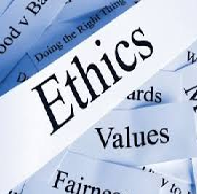Social Work Ethical Dilemma and Code of Ethics PAGE 1: Describe a specific ethical dilemma based on one passage below. Describe the ethical issues in the passage. Identify specific values or ethical standards that apply.Identify who is likely to be affected by the ethical dilemma.

Describe potential courses of action. Examine reasons in favor of or opposed to the course of action. PASSAGE: As technology advances, so do the ways that social workers can connect with clients. Is it acceptable to look at a client’s activities on social media or seek information through an Internet search? Should a social worker allow clients to contact them by text or e-mail? How does a social worker’s personal social media presence influence the worker/client relationship? PAGE 2: RESPOND TO EACH EXAMPLE SEPARATELY BY Explaining additional ethical standards and values that your colleague may need to consider in the case. A: Ethical Dilemma: Fernando is a counselor who has been working with Trixie for several years. Trixie is getting married and sent Fernando an invitation to the wedding. Should Fernando go? The primary ethical issue involved is that of a dual relationship. Specifically, there is a boundary issue (Kirst-Ashman & Hull, 2018) in that Fernando is Trixie’s therapist, and bound by all of the laws that govern that relationship, and the fact that Trixie is making overtures for friendship outside of that legally bound relationship. The Code of Ethics (2008) states that “social workers should not engage in dual or multiple relationships with clients or former clients in which there is a risk of exploitation or potential harm to the client”. Ethical standard 1.07(i) states that” (i) Social workers should not discuss confidential information, electronically or in person, in any setting unless privacy can be ensured. Social workers should not discuss confidential information in public or semi-public areas such as hallways, waiting rooms, elevators, and restaurants.”. The fact that Trixie is Fernando’s client is in itself confidential. By virtue of the fact that they have any relationship at all, it could compromise Trixie’s confidentiality. On the other side of the coin, Fernando could also be called into account for his questionable presence there, even if Trixie is ok with everyone knowing that he is her therapist. Courses of action: a) One course of action would have Trixie sign some sort of confidentiality waiver for him to be at her wedding. It would not mean that Fernando could discuss her therapy there, but at least give him some sort of acknowledgment by Trixie that she is aware that by his presence there, people may know that she saw him as a therapist. A plus to this is that it would preserve the relationship with Trixie and let him be available to show up in support of her on her wedding, but it is not iron-clad. It does not guarantee Fernando that he is free of all ethical constraints in the situation. Another course of action would be to politely decline the invitation stating the concerns about ethics, privacy, and his licensure. The positive to this is that it is the safest way to protect himself from any ethical dilemma. The downside is that it could potentially be a barrier in the relationship moving forward, however since he has still retained his license, he can discuss the issue with Trixie in their next session. B: Problem: Current residential client goes home for a weekend visit. While at home she searches her therapist name and finds a picture of her at a bar with friends. When she gets back to the facility she tells other clients. Since the day each of us was born to now in 2019 we have seen a huge change in the way information shared and how we communicate with one another. A lot of paperwork has become PDF files you no longer need a person’s phone number to contact them. Technology in the social work field has been a blessing and a curse. Option 1 describes how technology has made communication with clients much easier. A client can email you from any place about anything and efficiency improves communication. Option 1 also brings up the topic of social media. Any client can stumble upon the social media accounts of service providers and vice versa. I do not think it is appropriate to share social media accounts between the client and social worker. This problem best falls under the social work ethic of “Importance of Human Relationships.” Social workers are not to build a relationship with clients outside of work. Social workers are supposed to help clients build relationships with the people already in their lives. Social media can become personal and having a client see how you live your life outside of work can blur the lines of the professional relationship. Blurring the lines of the professional relationship can negatively affect the client in many ways. For example, when it is time for the professional relationship to end the client may have a harder time letting go. You also never know who the client will share your social media accounts with and it may affect your relationship with future clients and employers. A course of action for this is having a phone that is only used for work. While on the road you can receive text, calls, and emails from clients. This will avoid clients from having your personal number while also having the convenience of quick communication. Also, I believe social workers should probably keep their social media accounts private or not use their real names. This will help lower the chances of client finding and following you.




